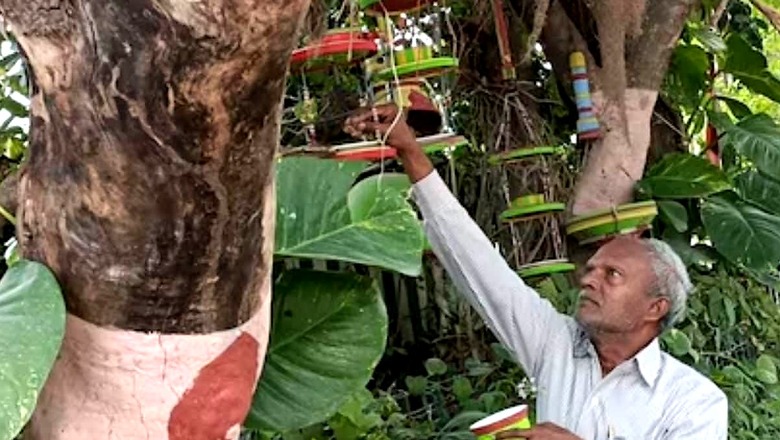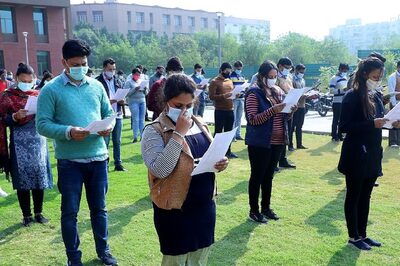
views
A retired government employee in Nizamabad in Telangana has become a saviour for the declining bird population by making nests for them. For the past decade, Jeevan Rao has been providing habitat for birds at his home and ensures they receive water and food three times a day- morning, afternoon and evening. Rao expressed great joy in serving the birds.
Having retired in 2014 from his position as District Inter Education Officer at Vinayaka Nagar New Housing Board Colony in Nizamabad district headquarters, Rao initially taught botany. However, upon retirement, he shifted his focus to cultivating green plants at home and set aside a special area for birds.
Jeevan Rao creatively repurposed plastic waste to benefit birds, even transforming damaged helmets into bird nests. He set up a dedicated facility to ensure birds have access to water and food. He also colourfully decorated lids of waste paint cans to serve as containers for water and food. Additionally, Rao collected sparrow eggs from the forest and secured them to trees to provide a safe environment for nesting.
Talking to Local18, Jeevan Rao emphasised the need for protecting birds, especially sparrows as their population has been on a decline in the last few years. According to him, sparrows play a crucial role in the ecosystem, providing both direct and indirect benefits to humanity. They consume worms and insects, including mosquito larvae, which helps in controlling the mosquito population.
Jeevan Rao highlighted that with the decline in sparrow numbers, there has been a significant increase in mosquitoes, leading to the spread of diseases. He emphasised the importance of having sparrows chirping around our homes to maintain a balanced ecosystem and reduce the prevalence of diseases caused by mosquitoes. Although the primary reason for the species’ decrease is still unknown, it is thought that modernisation, development and deforestation may have made nests unavailable, which has contributed to the sparrow population getting low.




















Comments
0 comment